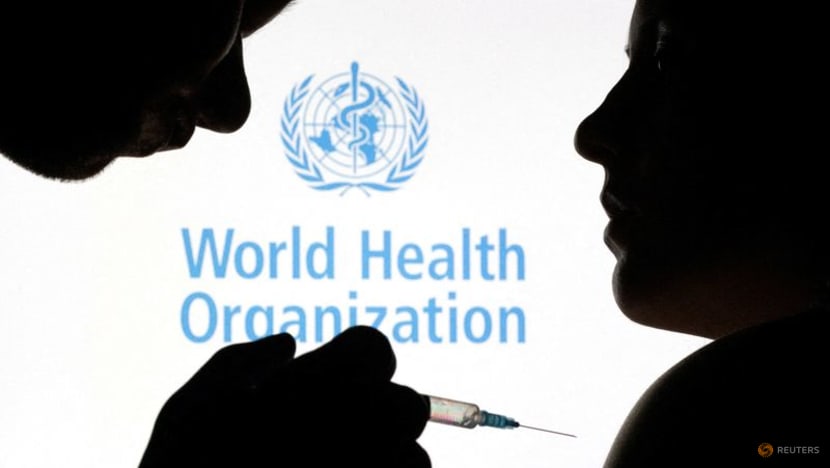Omicron cases doubling in 1.5 to 3 days in areas with local spread: WHO

People pose with syringe and needle in front of displayed
World Health Organization (WHO) logo, in this illustration
taken December 11, 2021.
REUTERS/Dado Ruvic/Illustration
18 Dec 2021
GENEVA: The Omicron coronavirus variant has been reported in 89 countries and the number of cases is doubling in one-and-a-half to three days in areas with community transmission, the World Health Organization (WHO) said on Saturday (Dec 18).
Omicron is spreading rapidly in countries with high levels of population immunity, but it is unclear if this is due to the virus' ability to evade immunity, its inherent increased transmissibility or a combination of both, the WHO said in an update.
The agency designated Omicron a variant of concern on Nov 26, soon after it was first detected, and much is still not known about it, including the severity of the illness it causes.
Related:

Omicron more likely to reinfect than Delta, no milder: UK study

Pfizer says pandemic could extend through 2023, studies three-dose vaccine course for children
"There are still limited data on the clinical severity of Omicron," the WHO said. "More data are needed to understand the severity profile and how severity is impacted by vaccination and pre-existing immunity."
It added: "There are still limited available data, and no peer-reviewed evidence, on vaccine efficacy or effectiveness to date for Omicron."
The WHO warned that with cases rising so rapidly, hospitals could be overwhelmed in some places.
"Hospitalisations in the UK and South Africa continue to rise, and given rapidly increasing case counts, it is possible that many healthcare systems may become quickly overwhelmed."
18 Dec 2021
GENEVA: The Omicron coronavirus variant has been reported in 89 countries and the number of cases is doubling in one-and-a-half to three days in areas with community transmission, the World Health Organization (WHO) said on Saturday (Dec 18).
Omicron is spreading rapidly in countries with high levels of population immunity, but it is unclear if this is due to the virus' ability to evade immunity, its inherent increased transmissibility or a combination of both, the WHO said in an update.
The agency designated Omicron a variant of concern on Nov 26, soon after it was first detected, and much is still not known about it, including the severity of the illness it causes.
Related:

Omicron more likely to reinfect than Delta, no milder: UK study

Pfizer says pandemic could extend through 2023, studies three-dose vaccine course for children
"There are still limited data on the clinical severity of Omicron," the WHO said. "More data are needed to understand the severity profile and how severity is impacted by vaccination and pre-existing immunity."
It added: "There are still limited available data, and no peer-reviewed evidence, on vaccine efficacy or effectiveness to date for Omicron."
The WHO warned that with cases rising so rapidly, hospitals could be overwhelmed in some places.
"Hospitalisations in the UK and South Africa continue to rise, and given rapidly increasing case counts, it is possible that many healthcare systems may become quickly overwhelmed."
No comments:
Post a Comment